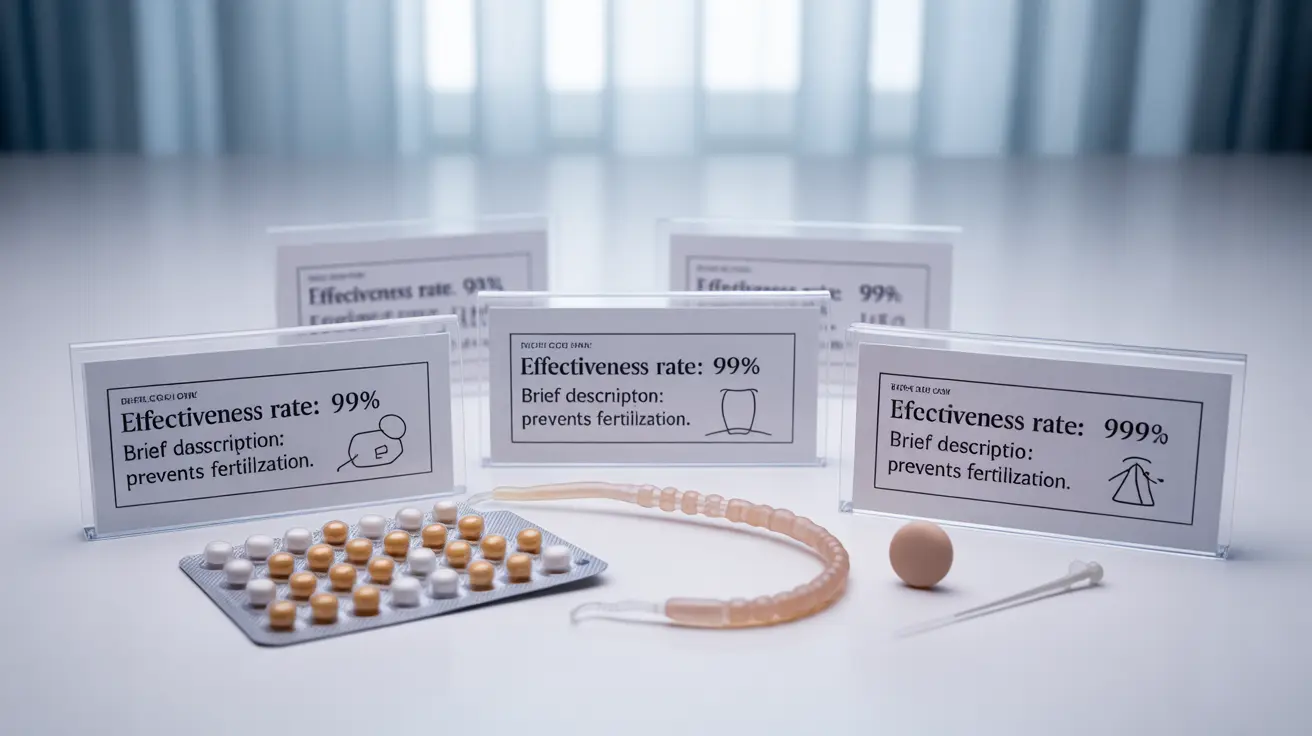Birth control methods are highly effective when used correctly, but no contraceptive method is 100% guaranteed to prevent pregnancy. Understanding how and why birth control can fail is crucial for anyone relying on contraception to prevent unplanned pregnancies.
This comprehensive guide explores the various factors that can affect birth control effectiveness and what you need to know to maximize your protection against unintended pregnancy.
Common Reasons Birth Control May Fail
Several factors can compromise the effectiveness of birth control methods, leading to unexpected pregnancies. Understanding these factors is essential for maintaining reliable contraception.
Inconsistent or Incorrect Use
The most common reason for birth control failure is human error. This includes forgetting to take pills at the same time each day, missing doses, or not following proper instructions for other contraceptive methods.
Medication Interactions
Certain medications can reduce the effectiveness of hormonal birth control. These include some antibiotics, antifungal medications, and certain anti-seizure drugs. Always inform your healthcare provider about any medications you're taking.
Types of Birth Control and Their Effectiveness
Hormonal Birth Control Pills
Birth control pills are approximately 99% effective when used perfectly. However, with typical use, the effectiveness rate drops to about 91%. This difference highlights the importance of consistent and correct usage.
Long-Acting Reversible Contraception (LARC)
Methods like IUDs and implants are the most effective forms of reversible birth control, with success rates over 99%. These methods eliminate human error since they don't require daily attention.
Factors That Can Reduce Birth Control Effectiveness
Health Conditions
Certain medical conditions can impact how well birth control works. These include:
- Gastrointestinal disorders that affect absorption
- Obesity, which may reduce hormone effectiveness
- Endocrine disorders that affect hormone balance
Lifestyle Factors
Various lifestyle elements can influence birth control effectiveness:
- Irregular sleep patterns affecting pill-taking schedule
- Frequent travel across time zones
- High levels of stress
- Significant changes in weight
How to Maximize Birth Control Effectiveness
To ensure the highest level of protection against pregnancy:
- Set daily reminders for taking medication
- Use backup protection when necessary
- Store contraceptives properly
- Maintain regular healthcare check-ups
- Stay informed about potential interactions
Frequently Asked Questions
Can you get pregnant while using birth control pills, and why does this happen?
Yes, pregnancy can occur while using birth control pills, primarily due to missed doses, taking pills at irregular times, or medication interactions that reduce their effectiveness. Perfect use provides 99% effectiveness, but typical use results in about 91% effectiveness.
What are the most common reasons for birth control failure and unintended pregnancy?
The most common reasons include missed or late doses, medication interactions, incorrect storage of contraceptives, and not following proper usage instructions. Vomiting or severe diarrhea can also affect pill absorption.
How do missed birth control pills or incorrect use affect the chance of pregnancy?
Missing even one pill can significantly increase pregnancy risk, especially during the first or last week of the pack. Multiple missed pills can essentially eliminate protection, requiring backup contraception methods.
Are some birth control methods more reliable than others at preventing pregnancy?
Yes, long-acting reversible contraceptives (LARCs) like IUDs and implants are the most reliable, with over 99% effectiveness. These methods eliminate human error and don't require daily attention like pills do.
Can other medications or health conditions reduce the effectiveness of birth control?
Yes, certain antibiotics, antifungal medications, and anti-seizure drugs can reduce birth control effectiveness. Health conditions affecting hormone balance or medication absorption can also impact contraceptive reliability.




